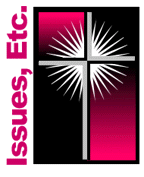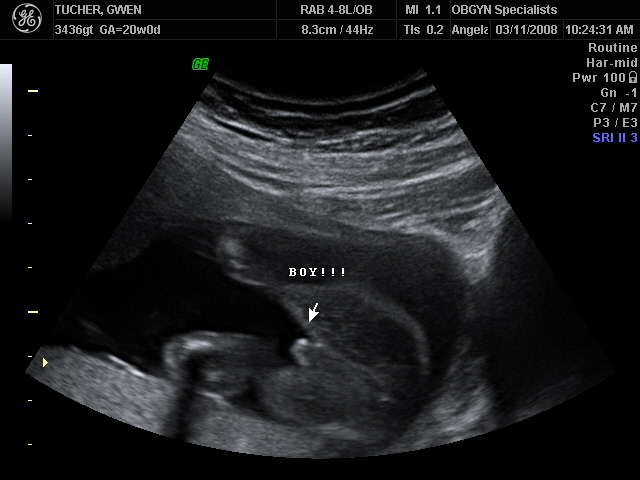Grace, mercy, and peace to you from God our Father, and from our Lord and Savior, Jesus Christ, amen. The text for the sermon this morning is the Gospel which was read earlier.
Death. It is all around us. At some point in our lives, someone we have known or someone we know has died or will die. At some point, even you will die. Benjamin Franklin, one of our “Founding Fathers” is quoted as saying “In this world nothing is certain but death and taxes.” Taxes aside, Benjamin Franklin is right: death is certain. This isn’t a concept that Franklin came up. This is reiterated throughout Scripture. Paul says in Romans that “the wages of sin is death.” As we see in our text for today, death has come for Lazarus, the brother of Mary and Martha.
Death is the ultimate result of sin. Sin separated us from God. Sin caused pain and hurt to enter into creation. As a final result, sin gave to us death, the ultimate separation from God. It separates us from His holiness, His perfection and His Word of truth.
At the loss of a loved one, we seek comfort. Some seek comfort in friends and family. Some seek comfort in the things of this world. For Martha, she sought comfort in her Lord and Savior, Jesus Christ. She tells him, “Lord, if you had been here, my brother would not have died. But even now I know that whatever you ask from God, God will give you.” She knows that while family and friends can tell her that things will be okay, her brother is still dead. She knows that the world can bring her comfort in many things, but in the end, the world cannot bring back her dead brother. She goes seeking Jesus because she knows that He is the Christ, the Son of God. He gives her the assurance that she is looking for: “Your brother will rise again.” That is the assurance that Christ gives to each and every one of us: you will rise again.
During this season of Lent, now, more than ever, we hold the cross before us as a constant reminder of why the cross is there. The cross is there because of you. The cross is there because of me. The cross is there because of your sin. The cross is there because of my sin. Paul knew that it was his sins that put Christ on the cross. As he writes to Timothy and his church at Ephesus, he says, “The saying is trustworthy and deserving of full acceptance, that Christ Jesus came into the world to save sinners, of whom I am the foremost.” He knew of his acts against Christianity, how he murdered Christian after Christian after Christian. He knew, after meeting Jesus on the Damascus Road, that he was indeed a sinner and was in need of forgiveness. He knew that he was spiritually dead because of sin.
Do you know that you are spiritually dead because of sin? Do you truly and honestly accept that fact? The psalmist David did when he wrote Psalm 51: “Behold, I was brought forth in iniquity, and in sin did my mother conceive me.” We are sinners, each and every one of us. However, that does not mean that we are left without hope. There is indeed hope for each and every one of us, hope for every man, woman, and child. That hope cannot be found in the teachings of Islam or Buddhism. You can’t go to Wal-Mart and say that you want hope for sinners. That hope can only be found in our Lord and Savior, Jesus Christ.
While Martha grieves the death of Lazarus, Jesus gives to her that hope that is only found in him: “I am the resurrection and the life. Whoever believes in me, though he die, yet shall he live, and everyone who lives and believes in me shall never die.” That is the hope which we have to look forward to. That is the hope which the world cannot give. This is hope which can only come from God. It comes to us through Jesus Christ and His life, death, and resurrection. This is hope which we see demonstrated for us on the cross of Calvary.
With this hope that Christ gives, there is one caveat that He gives to Martha: “Do you believe this?” The answer is both an easy one and a hard one. It is easy insofar as that we say that we believe what Jesus says about Himself, that He is the resurrection and the life and that He gives to each of us everlasting life. The hard part comes about how we believe. We can’t believe on our own! Luther writes in the Explanation of the Third Article, “I believe that I cannot by my own reason or strength believe in Jesus Christ, my Lord or come to Him; but the Holy Spirit has called me by the Gospel, enlightened me with His gifts, sanctified and kept me in the true faith.” We cannot believe because we are sinners. We only believe because the Holy Spirit gives to us that faith and the ability to believe. That’s what happens when you are spiritually dead; you have no faith. It is through the work of the Holy Spirit that faith is given to us.
When we see Martha and Jesus at the tomb of Lazarus, Jesus tells her to remove the stone, that Lazarus may exit the tomb. Even though she had earlier confessed to Jesus that she knows that she will see her brother again “in the resurrection on the last day,” here she shows her doubt, saying that Lazarus has been dead for four days. Then, Jesus asks her a question which, if He were standing here before us today, He would ask us the same question: “Did I not tell you that if you believed you would see the glory of God?”
That is the question which is before us today, the question of whether or not we believe. But what is it that we believe in? Do we believe in God, the God of Scriptures, Father, Son and Holy Spirit, or do we believe in “god” as he is revealed to us through Islam or Buddhism? Do we believe in the “god” of televangelism, the “god” who blesses you if you just believe that you’re a good person and give lots of money to that particular televangelism ministry?
We see throughout Scripture people who believed in a “god” other the one true God. We see people over their children as a fiery sacrifice. We see people, who after having seen the miracles which Jesus performed, still do not believe that He is the Christ, the Son of God. Even in our text for today, we see how some of the Jews who were with Mary and had seen Jesus bring Lazarus back from the dead went to the Pharisees to tell what had taken place. Their major concern: “If we let him go on like this, everyone will believe in him, and the Romans will come and take away both our place and our nation.” They were worried that the people would believe in Jesus rather than in them. They were more worried about their position of power than the fact that Jesus is offering to them everlasting life.
That is what Caiaphas, the high priest, tells all those who are gathered. “You know nothing at all. Nor do you understand that it is better for you that one man should die for the people, not that the whole nation should perish.” Caiaphas had used the term “people,” a term used for the Jews as God’s covenant people. This was God’s intention, that His Son die in the place of people who would benefit from His Gospel covenant. This was first of all the Jews through whom the promise would be realized. But it was also the entire human race. As John comments on this promise, he switches to the word “nation,” emphasizing that the Jewish people had for the most part forsaken God’s covenant. They were now merely the nation through whom God had made the promise and were not the “people of God” by faith. John then immediately adds that this promise was not merely for the Jewish nation, but for all people of all nations for all time. From all the nations of the world, the children of God would be gathered into the one holy Christian Church by Spirit-worked faith in the Savior who gave His life to earn forgiveness for all people. In the name of Jesus, amen.
Now the peace of God, which passes all understanding, keep your hearts and minds through faith in Christ Jesus, amen.
Lent 5A 2008



